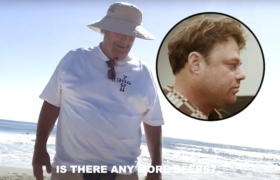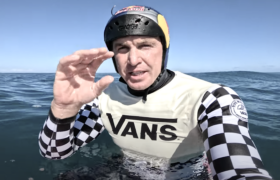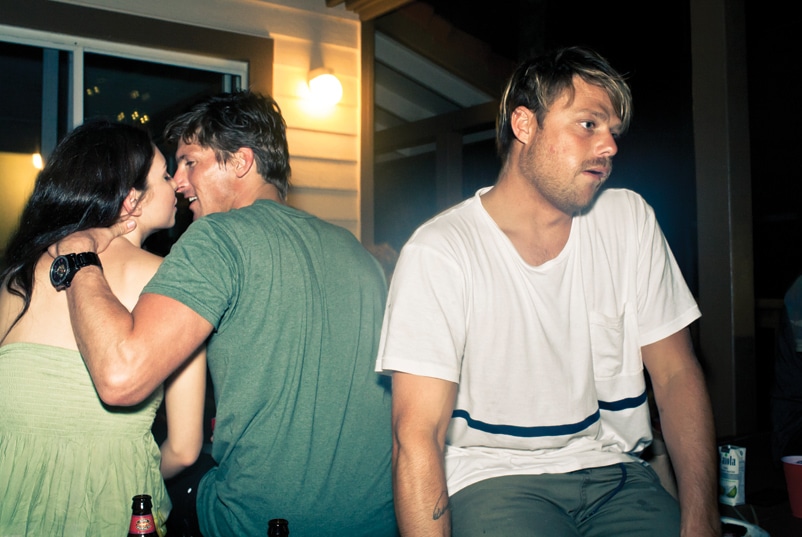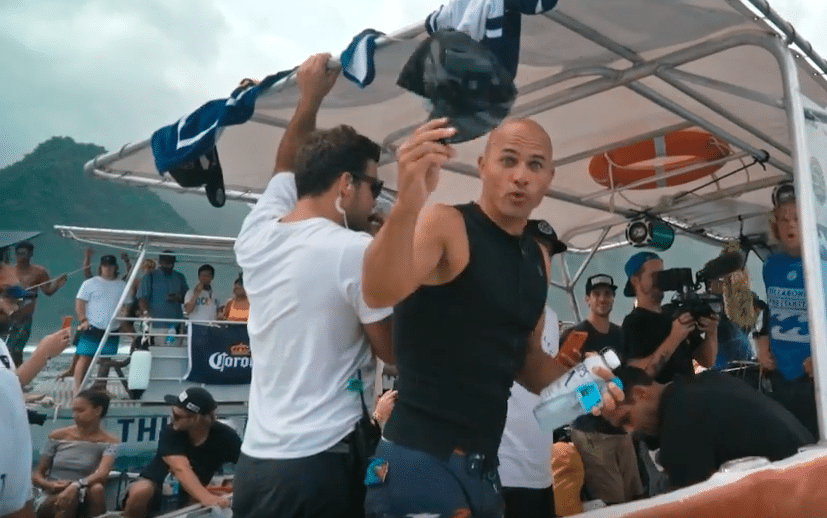Rejection ain't easy. Especially when it spikes the heart of a kid…
The married couple liked to “jog.” The husband had been to America and had brought back an enthusiasm for the new fad years before it was to reach the isolated suburbs of Western Australia. (He imported a thirst for “swinging” too, although his wife was uncooperative.)
Just before the sun rose every morning, the couple would circle the 500- metre crescent where they lived six times.
Every Saturday, as they passed number 10, they would wave at a boy whom they estimated to be seven years old, but who was actually 10, squatting on top of the cream brick letterbox, as if ready to spring an attack on an unknown enemy.
Sometimes, the boy’s shivering was visible and this wasn’t surprising with his uniform of boardshorts, singlet, visor and thongs, even in winter. On the coldest mornings, he would be wrapped in a towel that had the words Ocean and Earth written across it in large block letters. Other days, the towel would be folded on top of the surfboard that leaned against the letterbox. If you were to stop and watch the boy you would see that he checked the large yellow plastic watch on his wrist every few seconds.
By then, the sun was well above the horizon now and the boy’s shivering had stopped. His freckled face would be cut into a grimace as the sun hit his eyes. If the couple had ever stopped to see what happened next, they would’ve seen the boy’s mother hurry up the driveway in a dressing gown that ballooned in the morning offshore, whisper in the boy’s ear, help him down from the letterbox, and hold his hand as she led him inside, the boy’s surfboard hanging from a strap on his shoulder.
Most Saturdays, they would see the boy still sitting there even after they’d jogged their six laps, had gone home for breakfast, and were now taking their Afghan – another American influence – for a walk.
By then, the sun was well above the horizon now and the boy’s shivering had stopped. His freckled face would be cut into a grimace as the sun hit his eyes. If the couple had ever stopped to see what happened next, they would’ve seen the boy’s mother hurry up the driveway in a dressing gown that ballooned in the morning offshore, whisper in the boy’s ear, help him down from the letterbox, and hold his hand as she led him inside, the boy’s surfboard hanging from a strap on his shoulder.
The boy would walk back into his room, prop his surfboard against the wall in the corner, nose down, just as he’d seen it done in the surf shop, and lay down on his bed, looking at the trees outside his window and waiting for the onshore change that always came by nine am.
He would have liked to call his friend, but he was afraid, so afraid, of a definitive rejection. Because, even now, even two hours after the appointed pick-up time, his ears were attuned to any sort of crackle that might signal the arrival of a VW.
Rarely, perhaps once ever six Saturdays, the couple would see the boy climbing into a bright orange Volkswagen station wagon, an older boy smiling at him as he shifted into the back seat. A bearded man would tie his surfboard onto the roof with short lengths of rope.
The boy’s failed vigils disturbed the husband and he often spoke about it with his wife.
Why does the Rielly boy wait for a lift that hardly ever comes?
His wife would shrug and liken it to their passion for “jogging.”
But, it upset her, too.
He was too young to be rejected so blithely.
For the boy’s part, he never felt rejected or ignored.
Of course, he felt sad. And sometimes the sadness was so overwhelming he pushed his face into his pillow until it was damp with tears.
But, only because when you live in Perth and your surfing is limited to weekends and you miss that early offshore window, fuck, wouldn’t you cry too?








